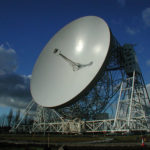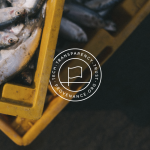I know it can be hard sometimes to grasp and translate ideas in a single-shot, over the phone, but this Guardian “article” recounting their interview with me reads like it has been /auto-corrected/speech-to-text’d/ by an Engrish bot. Given it’s written in the first-person, I felt more than a little irritated by this.
So, in an effort to turn their semi-open-data into something you can read, I’ve turned the words in the article into something closer to what I actually said. I’ll try and keep as close to their format/structure as I can.
Where did your passion for open data come from?
I’ve always been involved in technology: writing software to create scientific models, analyse business data, or using the web create new services. At Jodrell Bank (the radio telescope), we were mapping large chunks of the Universe – helping to explore and understand its structure.
Throughout my career, from Jodrell Bank to AMEE (which calculates environmental impacts), I have been heavily involved in scientific modelling, data analytics and statistics (also now known as “data science”).
What their original article said:
“I’ve always been involved in technology-writing software and where that meets other disciplines, such as science and business. Working at Jodrell Bank, mapping large chunks of US feasability data – to take one extreme – was about tackling large questions around the structure and nature of the universe. In hindsight, that path – where technology meets larger questions about our surroundings – has been self-evident over my career; in Jodrell Bank, doing what would now be called data analytics, down to Avoiding Mass Extinctions Engine (AMEE), my startup company, which calculates environmental impacts.”
Comment: the idea of a radio telescope mapping “US feasibility data” is quite entertaining (there is no such thing, and if there were it’d have nothing to do with astronomy). Never mind the spelling.
What will the Open Data Institute be doing?
We are facing some of the greatest challenges of our time. Whether social, environmental, or economic, I strongly believe that open data can act as a powerful tool to help us gain insight and act with confidence. For example, many large companies learned that simply by measuring their energy consumption (most were not), they can work out how to save substantial amounts of money and reduce their emissions. Open data can unlock insight and value.
The ODI is the first organisation focussing specifically on open data. Our vision is “Knowledge for everyone”. We are acting as a convening space for governments, companies, communities, and individuals who are already involved in this field.
Given the scale of opportunities, the ability to bring together different experts is important. We’ve seen over 700 people through our space in the last 3 months. These include NGO’s, Venture Capital firms, small business, artists, our own and international governments. To me this signifies that open data is a cultural phenomena.
I am very excited about the ODI’s potential to bring people together and catalyse innovation.
What their original article said:
“The ODI has the incredible position of being the first and only institute of its kind. We’re facing some substantial challenges – social, environmental and economic – and the institute will play a significant part in addressing those challenges, including bringing in efficiencies. For example, simply by measuring environmental impacts, 10%-20% of emissions can be saved by companies. That’s from having information in the first place – more information unlocks information.
National organisations and individuals are embracing more open data, and one potential for the institute is opening up knowledge for everyone, giving more insight across NGOs, capital venture companies, academics and so on. Cross perspectives and enabling people to learn is key. We’ve had in members of the Cabinet Office, small businesses, delegates from Asia and elsewhere – hundreds of people from all these different arenas, all interested in how we can move this agenda forward. Innovation and knowledge can affect social, environmental and economic issues – a triple bottom line, but also a very human side.
I see the Open Data Institute as an opportunity-capturing area, looking at how we can create something at scale, and I’m delighted to join in that.”
Open data – buzzword or game changer?
Open data is not new. The open web is the most successful information architecture in history, but it is not just a web of documents, it is a web of open data. In terms of timing, it feels like the mid-1990s – vast amounts of new information are about to be made available in a connected way, and the impact of this could be as game changing as the web has been over the past 20 years. This is particularly relevant as we increase our reliance on data to make decisions.
Working with world-leading experts, and the ODI’s co-founders, Sir Tim Berners-Lee and Professor Nigel Shadbolt, is an honour and their involvement signals the importance of our work.
What their original article said:
“It’s much like the web in the early 1990s. We’re at a tipping point where more and more information is available and so there’s more to unlock. I’m delighted to be working with some of the world leaders in this new movement, including Tim Berners-Lee and Sir Nigel Shadbolt. This is the most exciting thing I’ve done. Projects in the past have included building Virgin.net‘s early web presence, a pioneer in that space, a web-streaming business, and the last, helping to create an ecosystem around environmental data. But for me the opportunity is different. We’re in an age of data-driven decision making, with vast amounts of data. It’s huge and transformational.”
Comment: I’m not sure what the rest of my background has to do with the analysis of buzzwords. And they switched the Knighthood… (congrat’s Nigel!)
With a degree in astrophysics and a masters in electronic music, did you see yourself doing what you do now?
What I’m doing now didn’t exist when I did my degrees. In 1993, my first paid job was to review all music software on the internet. If you Google that now there are hundreds of thousands of results. I enjoy research and exploring new ideas, especially if you’re not sure what the questions are.
What their original article said:
What I’m doing now didn’t exist when I did my degree. In 1993, my first paid job was to review all music technology and, if you Googled that now, there would be hundreds of them. In hindsight, none of those things had really taken off. It’s very exciting when we don’t know what the questions are and we’re tasked with finding out what those are – and then looking for answers.
What’s your leadership style?
In order to create, we need to explore many ideas. Developing a culture where experimentation is encouraged is essential: we all need to be able fail, sometimes frequently, while we work things out.
The whole team should be involved in the design of the organisation: we are developing coaching and mentoring programmes for everyone. This will help create a strong organisation as well as help anyone in our team provide support to the companies we are incubating, and to the broader community.
One model I find interesting is the “servant-leader” model.
What their original article said:
A lot of what we do is through trial by example and error. That drives me, learning itself – and from those around me. We’re building team empowerment to help our teams make their own decisions and developing a mentoring scheme for our energy and emerging markets team. It’s about how we can best serve our teams and stakeholders. MIT [the Massachusetts Institute of Technology] is doing research on the idea of the servant leader, and that’s what I try to do.
Comment: Given leadership is the theme of their series, this was to me the most disappointing part to read
What three things would you take to a desert island?
A piano, an internet-connected laptop (if that’s allowed?) and a painting by my friend Ulyana. (http://www.ulyanagumeniuk.com).
What their original article said:
A piano, an internet-connected laptop (although I’m not sure that’s allowed) and a book or a painting by one of my friends, Ulyana Gumeniuk.
Comment: Ulya doesn’t write books




